Transferable Skills for Illustrators
Whether you are just starting out as an illustrator, are a mid-careerist, a graduate or somewhere in-between, it’s important to maintain a well balanced and skilled freelance lifestyle between your creative and business sides.
The late great Maya Angelou was a celebrated and beloved writer and poet, however her long creative career also included (in no particular order) being a singer, a dancer, a theatre director, journalist and scriptwriter. In these creative endeavours, she had what we would now call transferable skills and these can be incredibly beneficial to illustrators and creatives who might find themselves in need of some breathing space to support themselves and their work.
So, whilst we can’t all aspire to be Ms Angelou, it is absolutely possible to rethink what you are capable of, when you might feel the passion for your work waning a little and how utilising your existing, transferrable skills can breathe fresh air into your creative life.
What are Transferable Skills and where do I find them?
Working as an independent illustrator comes with a lot of challenges but can also have its pressures. The good thing about being a creative person is that you will have acquired many skills, through your work and your professional life experiences. The not-so-great news is, that you may not quite realise how many of these can also be of value, in other ways. But what happens when the landscape changes, maybe it gets a little quiet workwise or you just aren’t where you would like to be. That’s when it can be helpful to consider your own unique set of transferable skills.
The AOI has lots of really useful Resources to help, many of which are free for all to access, including our Self Promotion and Business Practice guides.
It’s helpful to understand that ‘transferable skills’ are the skills you may already have (or wish to learn), which can be utilised in a different way to how you might be used to practising them. Whether this is for a different way of working or even just to help you to understand the many options already open to you. These can be highlighted as the key words that will crop up in job applications or creative grant applications, but may not always be instantly obvious in relation to what you do.
Your skills will likely include your Creativity Skills: technical skills such as illustrating in analogue and/or digital; idea development: working to a deadline; mastering your own style. Your Business Skills will at some point then include managing your finances, self-promotion, research and negotiating with clients.
UAL concluded that there were three key skills for creative graduates, which can also be applied to freelance illustrators:
• ‘Creativity: Creativity, innovation and the ability to adapt are all necessary skills in today’s workplace’.
Illustrators by their very nature are creative people whose role is to illuminate an idea.
• ‘Project management: meeting deadlines, managing time, organising activities and breaking down larger tasks into smaller tasks are all forms of project management’.
It’s easy to underestimate how important the skill of managing and delivering a project is.
• ‘Communication: Being able to communicate information clearly to a range of audiences is an essential skill’
This can also include working with clients, negotiating briefs and commissions. Remember, as a uniquely skilled illustrator/creative you will find it helpful to think broadly about this, if you work freelance then you will have experience in running your own business and project work – congrats! See our Business Practice Resource for more details on being a freelancer.
As a simple test, think broadly about the work you have done professionally or just in life generally. From this, pick out 3 skills which relate to each of the following:
- Creativity
- Project Management
- Communication
You probably have more skills than you might initially think and it can be really helpful to come back to this list and even add to you, just to remind yourself of how far you have come and which areas may need some work.
The importance of personal ‘passion’ projects
Personal projects can be a healthy but important way to keep your creative practice true to yourself. As indicated by The Annual Illustration Survey founded by Ben The Illustrator and supported by The AOI, the vast majority of illustrators enjoy experimenting with materials, so why not give yourself space to experiment with different mediums, to go in new directions or explore particular areas of interest with no one to instruct you otherwise. It can be daunting, but there can be a joy to be found in accidental creations. They can also be a wonderful way for those illustrators who are just starting out, to create context relevant work, which can then help potential commissioners to visualise your work, as a professional illustrator they may wish to work with. During a recent AOI Meet Up Caroline Pedler reaffirmed the importance of personal projects for growth and expanding your flexibility.
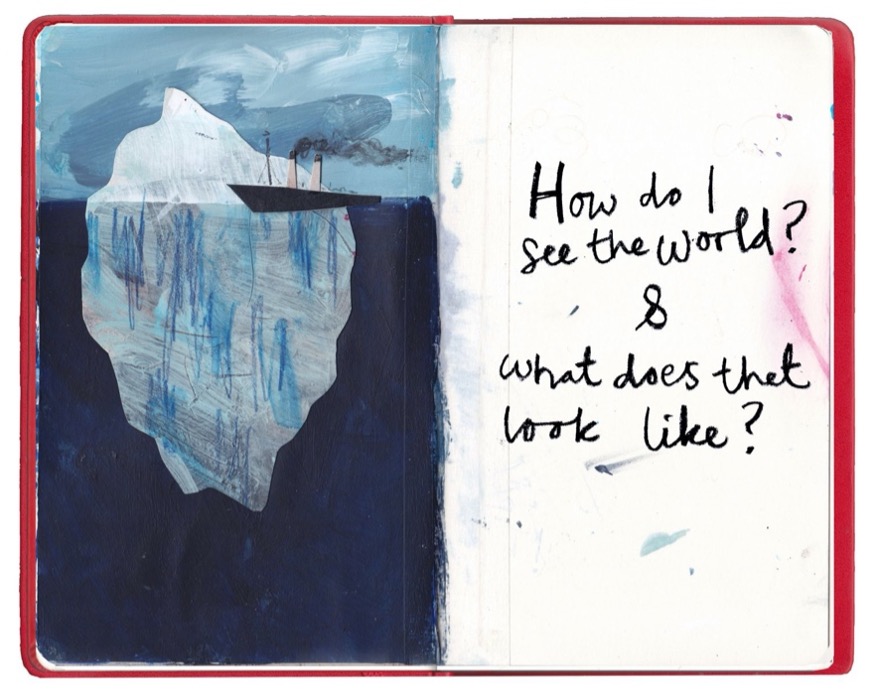
These projects can be an excellent way to showcase your skills to potential clients, without the pressure to conform. Remember, commissioners are always looking for new ideas/illustrators who have something interesting to say so there is also the potential to be commissioned off the back of work created from a clear passion and understanding of a subject close to your heart.
For longevity, you must enjoy what you’re working on in the present and future – if you dislike how you’re approaching illustration work now, take the time to re-invent yourself and reflect.
Finding Your Creative Voice: 10 Tips & Insights Feature
WIA 2021 Winner Dominic Bodden’s ‘Portraits of Westlake’ project is a clear example of how well this can work. The series of illustrations are an investigation into the impact of gentrification on the neighborhood of Westlake, Los Angeles and were an award winning entry for The AOI’s WIA 2021.
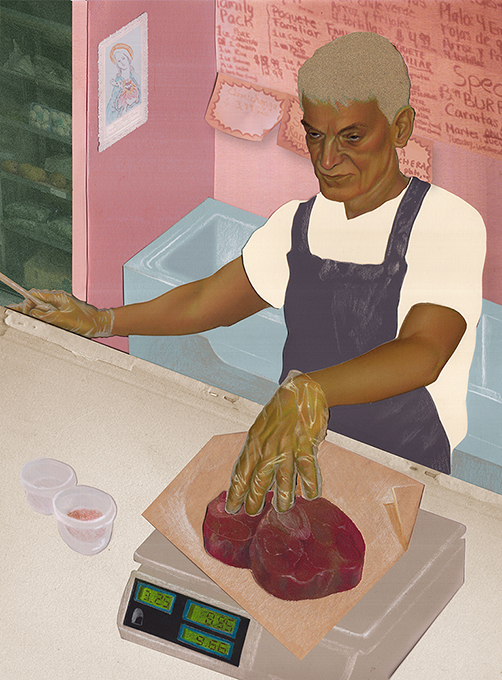
WIA 2020 shortlist entrant, Kezia Gabriella also showcased their work in a series for Double Negative Brewery, a hypothetical client. Off the back of this work, Kezia was then able to secure work with commercial clients.
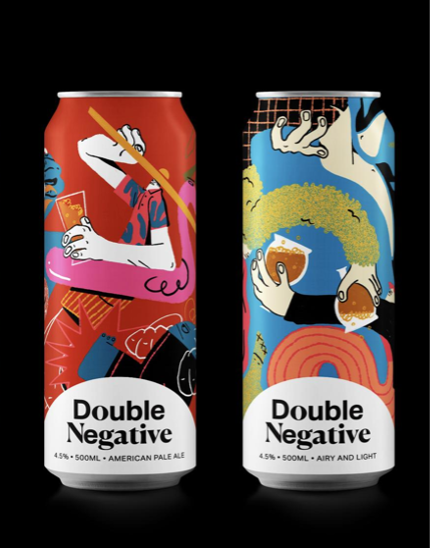
AOI Members can attest to the value of these projects. The Lancashire based Graphic novelist and illustrator Mollie Ray offered in one our recent articles:
My main piece of advice would be to push creating the work that means something to you, that you have real passion for, as this will always translate into your strongest and proudest work
Mollie Ray
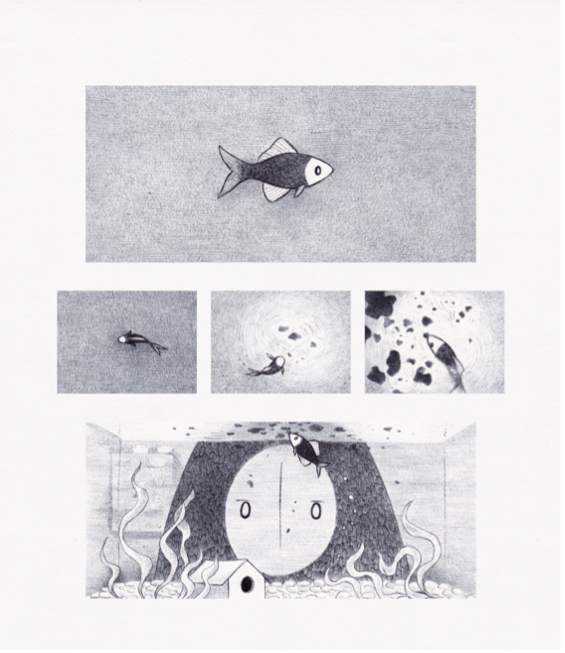
This can allow you space to make interesting (or never-doing-that-again) mistakes without worrying about the end product. Often it is the doing which is just as, if not more interesting, than the final piece.
For those coming to illustration from a career elsewhere, taking a leap of faith into pursuing illustration can be exciting but, for some, a little more overwhelming at times. In making the most of your existing capabilities you can then grow to understand which skills are well honed and which can do with some growth and exploration, in order to build a more fruitful and less daunting creative practice.
To help support illustrators at all stages of their career, regardless of experience, style, background or genre, The AOI Business Practice Resources include guidance and tips including a Guide to Commissioning, Self Promotion, LinkedIn for Illustrators and more.
Trying something different
Part of being an illustrator is being willing to experiment and to trying new ways of creating. It might be that you’ve used the same medium for years because it’s comfortable or safe. But it can also help you try new directions which can lead to fresh work or even to help solidify what already works for you. Maybe you’ve been digital for ages and find getting your hands on some paint helps you think anew or vice-versa.
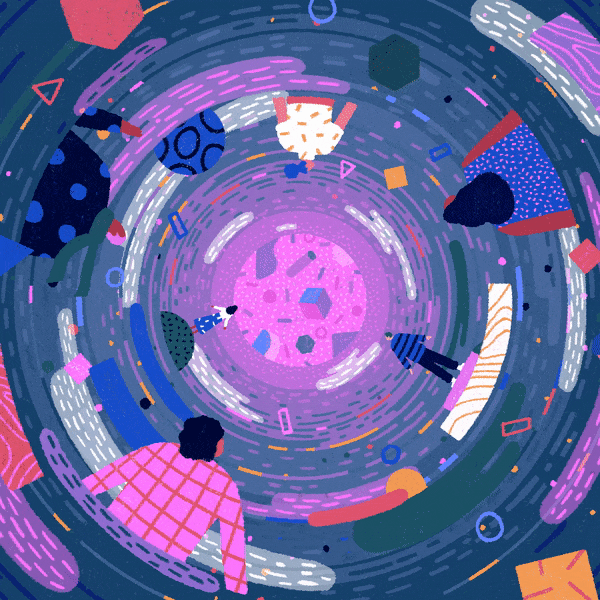
Enjoy some podcasts! There is a world of Podcasts out there covering almost anything you can think of. We’ve compiled our own AOI Recommended Podcasts and you can also check out our freshly launched Inside Illustration series, which includes an exclusive Podcast, a Creative Course for AOI Members, in-depth Article, Resource, Commissioner interview and a comprehensive ‘How To…’
Maintaining good Mental Health
This is fundamental to creatives as well as everyone on the planet. Looking after your wellbeing is just as, if not more important that the work you make. Our Mental Health for Creative Freelancers Guide is an invaluable support guide created specifically for our creative community. Designed to help guide you to places of support which you can turn to for help, if you are struggling with your mental wellbeing.
Other support
The Arts Council has a number of ways to help support creatives including jobs, opportunities and funds Supporting individual creative and cultural practitioners including the Developing your Creative Practice fund, which supports individuals who are cultural and creative practitioners and want to take time to focus on their creative development.
Second jobs or volunteering: Many freelancers find that having an additional job or volunteering, ideally with some degree of flexibility can help alleviate the pressure of working purely freelance. Paid work gives more financial stability whilst volunteering in a place of personal interest can provide space to think and also creative stimulus.
Trusted peer groups: There can be few things worse than poorly contrasted feedback, so it’s important not to ask ‘Tom Dick or Harry’ (unless they are actually helpful) and instead find a positively challenging and encouraging support group. Afterall, you wouldn’t just ask anyone for feedback on your work, so this is where those with an eye you can trust can be great. Not just those who will love everything you do, but those who will cast a wise eye and offer ways to expand, experiment and push your work forward (or focus a tad!). Build networks such as through our AOI Meet-Ups. These can be invaluable when you are feeling stuck but also great if you find feedback from other minds helpful.
AOI Portfolio and Business Consultations: The AOI offers consultations which are invaluable sessions from industry professionals – whether you need an experienced, review of your existing portfolio and what does or could work better, or you need expert guidance on running your own business as a freelancer.
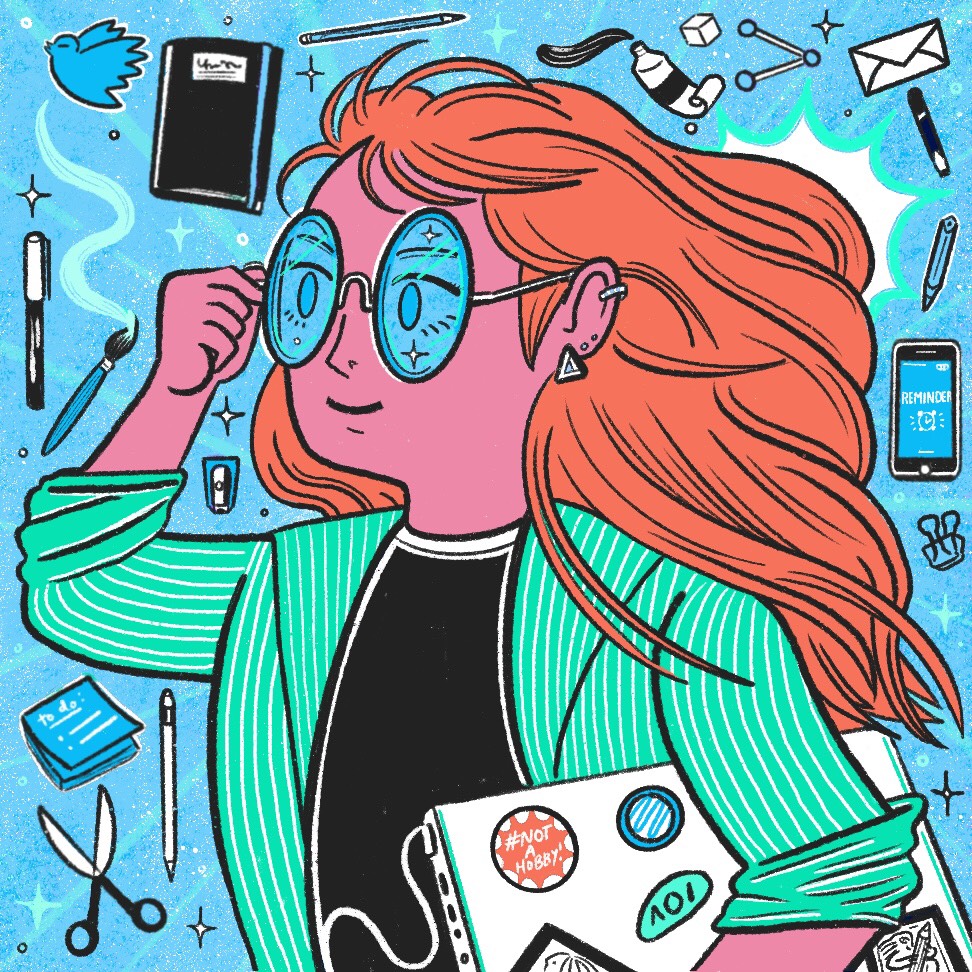
Business Consultations are perfect for illustrators wherever they are in their careers – from new starters to mid-careerist looking to reposition themselves when juggling life, caring responsibilities – for particular areas of focus include setting up your business as a freelancer, money management, self-promotion and setting goals.
Portfolio Consultations are great for early career illustrators, those in need of a change, or just freshen up their portfolio. The hour-long consultation can cover any area you want to focus on. Offering frank, unbiased feedback, as well as genuinely practical ways to build on your strengths and existing body of work.
Grants and Funding
Don’t forget that there are opportunities for funding and exploring your work. The Arts Council recently launched the Freelance : Futures symposium to discuss how they can ‘improve the support for and position of individuals working in creativity and culture‘. ArtRabbit also has some interesting opportunities specifically for the artistic community.
Whatever your background, style or influences, there will be a unique set of skills you already have which can help expand your horizons, so it’s good to give yourself time to reflect on your progress but also, just as importantly, to allow yourself time and space to grow in different ways, especially in such challenging times. Keeping a healthy balance to your life and work is doable, especially if you need to explore other avenues, in the meantime.
Further links
Explore yourself: The Arts Council’s Self Evaluation as way to improve your work
Creative Lives in Progress – Personal Projects
Creative Boom – 20 Essential Skills Locked Down
ArtsMinds Supporting creative practitioners in need
Back to News Page
